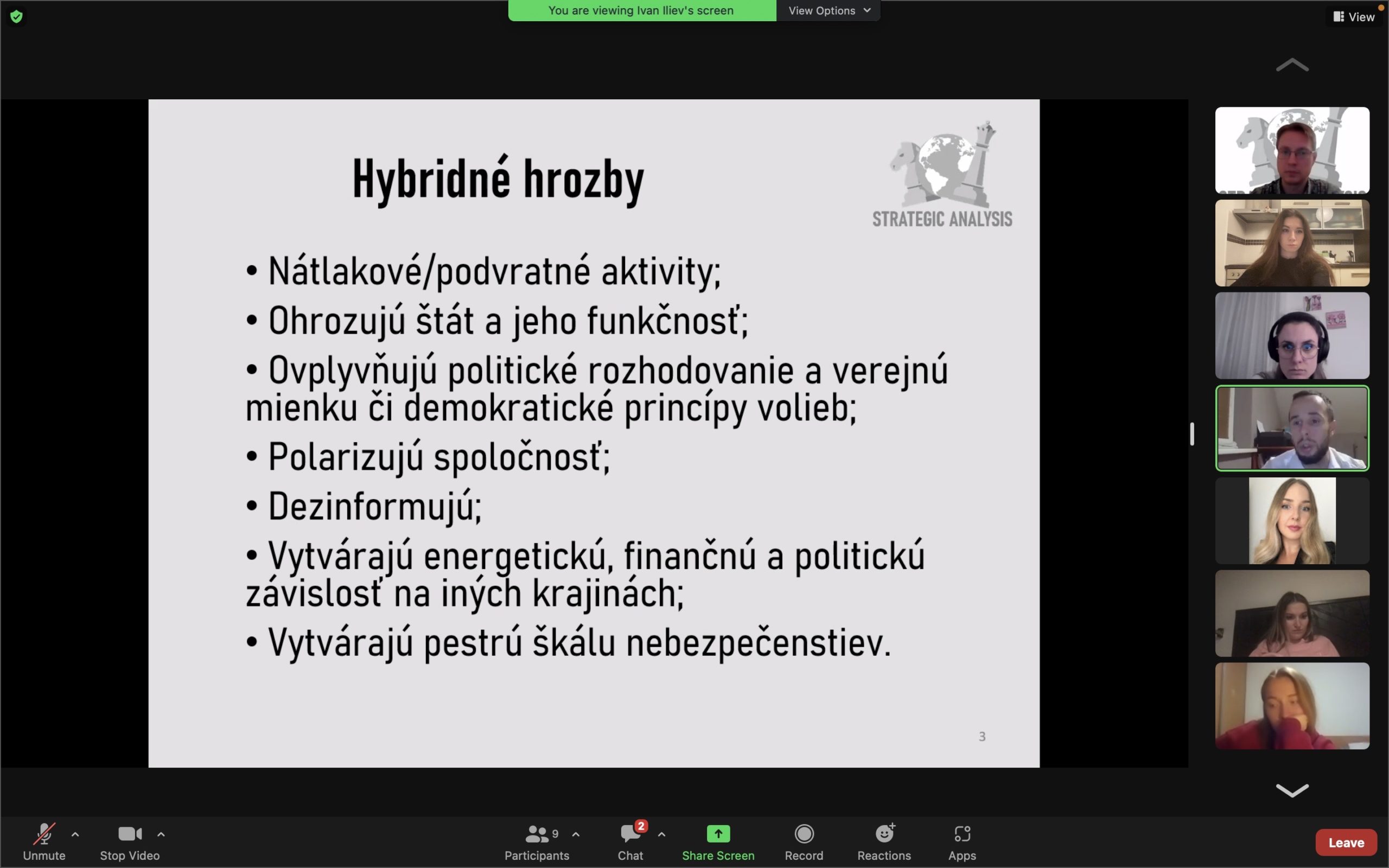Analysis of the Hybrid Threats in the Western Balkans region
On December 14, 2022, we had a second online discussion with our Young Leaders Programme members. The discussion focused on the hybrid threats in Western Balkans and their implications for the Slovak Republic.
The Western Balkans (WB) has come to the attention of the international community as an arena of great power competition. In their foreign policy orientation, the six countries of the region – Albania, Bosnia and Herzegovina (BiH), Kosovo, Montenegro, North Macedonia and Serbia – share a common Euro-Atlantic affiliation, although the degree of association varies. Internal functional and structural weaknesses – such as the aftermath of the violent break-up of Yugoslavia – open the door for hostile foreign actors to exert their influence.
The environment is fraught with ethnic tensions, border disputes and neighborly disagreements. All these countries are emerging democracies that have not yet recovered from the consequences of the Yugoslav wars. Their Euro-Atlantic orientation is currently the subject of tense debates. While Albania, Montenegro and North Macedonia have become NATO members, Serbia oscillates between East and West, despite its EU candidate status. Although the EU membership of the Western Balkan countries is still uncertain, all six countries have expressed their willingness to join the Union, but are progressing at different paces.
Efforts to promote the rule of law and media freedom in the WB have generally had poor results and corruption and crime rates remain high; the WB economies remain dependent on foreign investment and civil society is easily targeted by disinformation campaigns, especially in the current environment where trust between governments and people is lacking. All these factors have contributed to an environment that is vulnerable to hostile foreign influence.
The discussion had the ambition to map the main trends of hybrid threats in the WB region, focusing on the analysis of actors, relationships between them, tools, methods and forms of using hybrid ways to influence the decision-making processes of state institutions.


Contact us